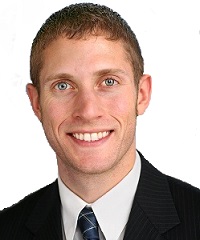 By Matt Fisher, Esq
By Matt Fisher, Esq
Twitter: @matt_r_fisher
Host of Healthcare de Jure – #HCdeJure
It seems as though multiple times per year the Department of Justice, the Department of Health and Human Services (HHS), or some other enforcement agency announces the largest sweep or takedown of health care related fraud. A joint Department of Justice and HHS announcement on June 22, 2016 is the latest example. The latest takedown involved 301 individuals including many providers (physicians, nurses, and others), totaled somewhere around $900 million and went across over 20 states.
The conduct involved in announcement covered almost every aspect of care that can be offered under Medicare, Medicaid or other federal healthcare programs. Some of the states involved were typical fraud hotspots, such as Texas, Florida, and Michigan, but many other states were included as well. The rundown of activity involved in the takedown includes:
- Florida – false billings for home health care, mental health services, and pharmacy fraud, medically unnecessary services, and provision of bribes and kickbacks
- Texas – medically unnecessary billings when services not rendered, claims based upon fraudulent home health referrals, and allowing unlicensed individuals to perform physician services
- California – physician charged with performing unnecessary vein ablation procedures
- Michigan – physical therapy clinic induced patients to come with kickbacks and medically unnecessary prescriptions, general money laundering and drug distribution schemes
- New York – patients paid bribes and kickbacks to go to physical and occupational therapy clinics, then subjected to medically unnecessary services
- Louisiana – patient recruiters were paid kickbacks to find patients who were billed for services that were either not provided or qualified
- Georgia – bribes and kickbacks paid to state official to falsify application and license requirements
- Tennessee – doctor received kickbacks for referring patients to DME supplier
The list of activities is much longer than that. There is a common theme of kickbacks and using money to influence behavior.
What the takedown seems to demonstrate is that fraudulent activity remains pervasive and likely easy to perpetrate. If fraud were not so easy, then so many different actors would not engage in it. The question then becomes, why are Medicare and Medicaid viewed as ripe for the picking?
Like many large institutions, Medicare and Medicaid may not always react very quickly. Additionally, it can be easy to establish a new provider, set up a billing number, and then run through a significant amount of billings before any red flags are spotted. Once a red flag is raised, then the fraudsters will often close up shop and move on to the next venture. It is an easily repeatable pattern.
Is this problem something that can be fixed? Arguably, yes it should be possible to significantly reduce the amount of fraud that can occur. The shift from pay and chase to pre-payment reviews should reduce some level of fraud. Connected to the pre-payment review is to better vet applications from new providers. If application information is thoroughly reviewed and verified, then the fraudsters who keep hopping around may be stopped or at least significantly hindered.
Another promising avenue is to take advantage of the vast amounts of data about claims, providers, and related items and run it through analytics programs. Medicare has been slowly improving on this front and starting to recognize returns. The same efforts are beginning to be rolled out for Medicaid. Given all of the discussion about big data and analytics as a tool for the provision of care, it seems natural that the same tools could help reduce fraud, waste, and abuse in healthcare too.
Time will tell whether any of these efforts will be beneficial. One thing is for certain, bad actors will always push the system and try to find weaknesses. If Medicare and Medicaid want to control costs, it will be necessary to ensure that only valid, medically necessary services are reimbursed.
About the author: Matthew Fisher is the chair of the Health Law Group at Mirick, O’Connell, DeMallie & Lougee, LLP, in Worcester, MA. Matt advises his clients in all aspects of healthcare regulatory compliance, including HIPAA, the Stark Law and the Anti-Kickback Statute. This article was originally published on Mirick O’Connell’s Health Law Blog and is republished here with permission.
